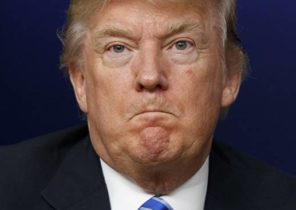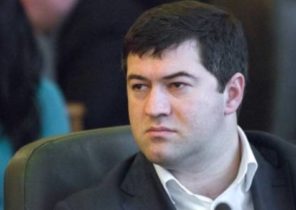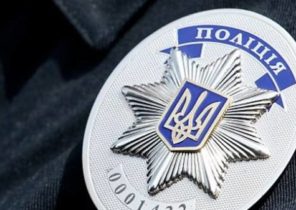
Two events in 2016 rocked the European Union, the US and NATO victory “Breccia” in the UK and Donald trump in the US — brought and one practical lesson: Russophobia in the elections does not help the victory. In the UK the public debate the EU supporters argued that the Russian threat hanging over Europe, and that “Brakcet” will become a gesture of frivolity and selfishness. Hillary Clinton and her allies have accused Donald trump in that he is underestimating the Russian threat and even subject to the will of the Almighty Vladimir Putin.
Especially important was the fact that during the referendum in the UK and the US election anti-Russian campaign were the mainstream media, which side of the opponents “Breccia” and supporters of Hillary Clinton. It was argued that the educated, wealthy, urban young voters in favor of the EU and Hillary, while ignoramuses, simpletons, provincial elderly voters choose “Brakcet” and trump. Thus, this meant that, unlike uneducated people, academic and wealthy elite fully believe in the fact that Russia is threatening her. Though NATO puts its troops and missile systems in the Baltic republics on Russia’s border, NATO into Ukraine, the risk of nuclear war and the fate of the world.
Russophobia is easily distributed to ministries and the media, and this is confirmed by the fact that even Boris Johnson, the staunch advocate of “Breccia”, after the victory and appointment as Minister for foreign Affairs, hastened to make anti-Russian statements. Ally trump Rudy Giuliani have also distinguished themselves, expressing threats against Russia. However, Donald trump declares that he will become closer with the Russians, and now it brings the supporters of Hillary Clinton before this anti-Russian hysteria. In the largest and most influential Western publications, we doubt read that the campaign of the newly elected President of the USA was coordinated by Vladimir Putin.
It is clear that the extensive roots of Russophobia goes very deep. It was not invented by Russian or Communist propagandists. John Gleason in the book “the Origins of Russophobia in great Britain” claims that she appeared during the Greek revolution and the Egyptian crisis in the first decades of the 19th century, when the struggle between Britain and Russia for influence and prestige in the Balkans and the middle East. Then the British, in the Wake of policy of non-interference, along with the Russian and the French sank the Turkish fleet, and himself, Lord Byron gave his life for the freedom of Greece. However, Russia took advantage of the confusion, to the treaties signed in Adrianople (1829) and Unkiar-Iskelesi (1833), to have special influence on the Ottoman Empire. Thus, as argued in London, Russia threatened the prestige of Britain and its way to India. Former proponents of laissez-faire became turkophiles and Russophobes.
Subsequently, the hostility of the British ruling elite to Russia and took control of the public opinion transformed into cultural prejudices. British Russophobia was attenuated only when the United Kingdom and Russia had only one enemy. In the first half of the 20th century it was Germany. Then, in the era of the cold war, Russophobia has embraced US and took anti-Communist forms.
Anglo-Saxon Russophobia had serious consequences for the history of the Serbs. The British interpreted the unification of the Serbs, Greeks and Bulgarians with the Russians in the struggle for liberation from the Turks as a clear sign: the Balkan Orthodox, especially of Slavic origin, were and remain the eternal servants of Russian Cossacks. Related to this is the idea of the British elite that the Serbs preferred to leave in the Sharia the Ottoman Empire and not allow them to escape with the help of the Romanovs. Hence, the future British support for Croats and Slovenes, in contrast to the Serbs, during the nationalist conflicts during and after Yugoslavia. So Mirrored Ekmecic and came to the conclusion that serbophobia — only river, which flows into the sea of Russophobia.
It is no coincidence that the clan Clinton, Joe Biden, successors, Tony Blair, David Cameron and the rest of the losers in 2016, and with them the mainstream media, saturated with Russophobia, traditionally hostile to the Serbs. Boris Johnson, as Minister of foreign Affairs, on the eve of the official visit in the past repeatedly bombarded Belgrade, in the author’s article in the magazine “NIN” wrote that “proud of the role Britain played in the Balkans” in “90 years” and stressed that “we were forced to make difficult decisions, and we know that not all of them agree”. Rudy Giuliani said that in 2012 reported greeted him in Belgrade persons, among whom was the current Prime Minister of Serbia: “I think you have to bombard”.
Now Donald trump switches the attention of the American hawks with Russia and, hopefully, with Serbs on the Muslim world and China. The new alignment on the West, the Russian victory in 2016 and the continued strengthening of China — all this is good news. Whether these opportunities are used depends, of course, from the Serbian government. However, his convulsive europarates not encouraging. As if the Serbian foreign policy is still run by the fears and passions of the ‘ 90s, not the historical experience and a realistic assessment of the balance of forces in the world.
The author is a Professor of history, faculty of philosophy, University of Belgrade.







